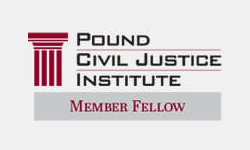If you’re a divorcing parent with a criminal record, you may assume that this record will prevent you from being granted any child custody rights — particularly if your spouse doesn’t want to share custody. Judges who are called on to decide custody cases focus on what’s in the child’s best interests. Your criminal history may or may not impact your ability to parent your children in a safe, healthy, positive way.
If your convictions are related to drugs and/or alcohol, such as possession charges or DUIs, a judge will look at whether you have a substance abuse issue and whether the kids are safe when they’re with you. They might be concerned about what kind of people you’re spending time with and whether the kids are exposed to dangerous substances when they’re around you.
Convictions involving domestic violence charges, of course, could prevent you from having any access to your children. This is true whether the crimes involved your children, your spouse or someone else.
Other types of criminal activity may have little impact. Perhaps you were found guilty of some type of white collar financial crime at one point. Unless the terms of your parole or probation would impact your ability to take care of your kids, a judge may not see that as a significant issue when it comes to custody — particularly if you’ve shown remorse for your actions.
Two factors are often significant: time and atonement. If you were convicted of marijuana possession or DUI when you were in college and have had a clean record since then, with no indications of substance abuse, that mistake will likely be irrelevant to your custody case.
Maybe you stole a car decades ago when you were hanging with the wrong crowd, but you’ve turned your life around and are a law-abiding citizen with stable employment. Your past actions may have no impact on your children’s safety and well-being.
Some cases aren’t as clear-cut. Even if you have ongoing legal issues, a judge may believe that it’s best for your children to be able to see you, even if it’s during supervised visitations. Family courts typically prefer that children maintain a relationship with both parents unless doing so could be physically and/or emotionally dangerous.
Discuss your situation with your attorney. They can help you make the strongest possible case for the custody or visitation rights you’re seeking.










